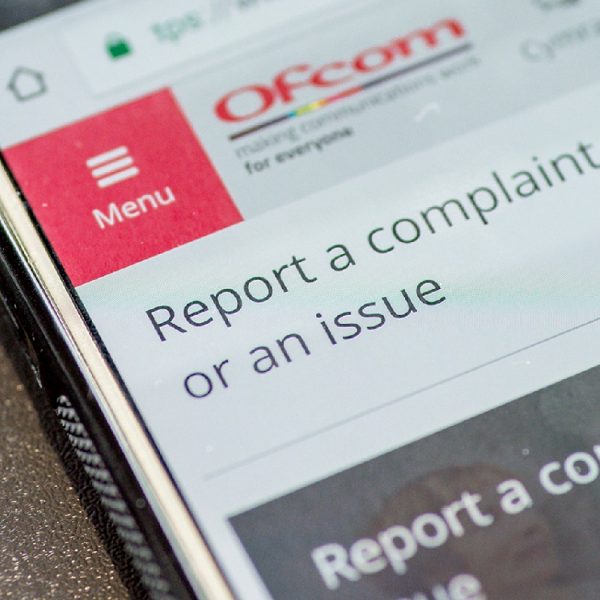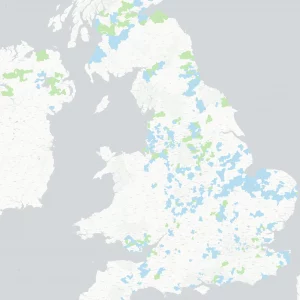Sponsored Links
Regulator Still Investigating ACS Law Over Illegal UK ISP File Sharing Threat Letters
Posted: 13th Aug, 2010 By: MarkJ
 The Solicitors Regulatory Authority (SRA) has confirmed that they are still investigating the controversial solicitors firm ACS:Law UK and have yet to reach a conclusion. The law firm has been accused of using bad practices for the way in which it sent threatening demands for money (settlement) to those "suspected" of using their broadband ISP connection to share (P2P) unlawful copyright files with others.
The Solicitors Regulatory Authority (SRA) has confirmed that they are still investigating the controversial solicitors firm ACS:Law UK and have yet to reach a conclusion. The law firm has been accused of using bad practices for the way in which it sent threatening demands for money (settlement) to those "suspected" of using their broadband ISP connection to share (P2P) unlawful copyright files with others.An SRA Spokeswoman told ISPreview.co.uk:
"I can confirm that we are still investigating ACS Law therefore no conclusion has been made. I cannot confirm any deadlines for this at present, however I will pass your details onto the relevant caseworker. They will then notify you when the investigation has been closed.
I hope that this information is helpful."
"I can confirm that we are still investigating ACS Law therefore no conclusion has been made. I cannot confirm any deadlines for this at present, however I will pass your details onto the relevant caseworker. They will then notify you when the investigation has been closed.
I hope that this information is helpful."
During June 2009 the UK Internet Service Providers Association ( ISPA ) said that they were "not confident in [ACS:Law's] ability to identify [ILLEGAL] users", a position matched by consumer magazine Which? that subsequently raised a complaint with the SRA. ACS:Law claims that "the information we get is completely accurate," though it was forced to drop an unknown number of cases prior to Christmas.
Last December's ACS:Law Statement:
"We have been reviewing all cases which are currently open, and a good number of these cases have been dropped, where we do not either consider litigation to be a viable option or to be beneficial to our clients. A letter has been sent out today informing those involved of this, and explaining that they now owe our client’s a duty of care to ensure this type of activity does not happen again."
"We have been reviewing all cases which are currently open, and a good number of these cases have been dropped, where we do not either consider litigation to be a viable option or to be beneficial to our clients. A letter has been sent out today informing those involved of this, and explaining that they now owe our client’s a duty of care to ensure this type of activity does not happen again."
ACS:Law tracks alleged abuse by monitoring the Internet Protocol ( IP ) address of online users, which is assigned to your computer each time you connect to the internet and made public on P2P networks. However this is not an effective way of determining a computer user’s true identity.
An IP can easily be faked, hijacked, redirected and generally abused or used in ways that the systems employed by such trackers cannot detect. Furthermore the owner of a particular connection/IP, such as in case of a hotel, business or shared public Wi-Fi network (secure or not), may not be the individual responsible for the actual act itself.

Those targeted typically receive letters in the post that accuse them of wrongdoing (here) and can demand the payment of a settlement fee that may often be worth hundreds of pounds. People who refuse to pay are usually warned that this could lead to legal action, which in reality rarely ever happens.
Suffice to say that more than a few consumer groups, ISPs and affected individuals feel that the way in which ACS:Law has conducted itself is unreliable, profiteering and "bullying". Many of those affected feel wrongly accused. There have also been cases of some people who do not even have internet access receiving such letters.
ACS:Law have also been caught sending out dubious questionnaires to broadband ISP customers whom they "suspected" of being involved with unlawful file sharing activity. Sadly what many of those targeted did not realise was that the questionnaires could be used to bolster ACS:Law's case against them (original news). The situation got so bad for ACS:Law that Andrew J. Crossley was recently forced to issue a public letter in response to the complaints against his firm.
A personal letter from Andrew J. Crossley
I have been operating the file sharing litigation aspect of my practice for a year now. I would like to counter five commonly held misconceptions about what my firm does:-
1.It is said I accuse individuals of infringement of copyright in my initial letters. This is not true. I make an enquiry of the recipient of my initial letter following receipt of evidence that their internet connection was utilized for the purposes of infringing copyright of our clients (or their licensors’ copyright, as appropriate);
2.It is suggested that I accuse people of downloading. This is not true. I state that the internet connection was used to make the copyrighted work we are concerned about available to others (in other words, uploading, not downloading);
3.I am accused of demanding payment in my initial letters of claim. This is not true. The recipient of the letter of claim is afforded the opportunity if they wish to close the matter off and avoid the issue continuing by entering into a compromise agreement to bring the matter to an end. They are under no compulsion or obligation to do this and the compromise agreement is an entirely voluntary process;
4.It is said our data collected is inaccurate and cannot be relied on as sufficient evidence to pursue a claim. This is not true. The data suppliers we use have all separately and independently been assessed and monitored to determine their accuracy and integrity of data captured. Reports by independent experts are produced and made available to court in advance of our application for disclosure and on each occasion so far the court has felt able to grant our applications, with these reports in mind. The only known and cited example of data being “wrong’ is that of the Murdochs (a Davenport Lyons matter). In fact there was no error with the data captured, but an error by an ISP in giving the wrong name to the law firm; and
5.It is suggested that I never issue any claims. This is not true. It is fair and correct to say that I try to avoid litigation wherever possible and exhaust all other avenues falling short of litigation prior to proceedings being issued (open offers of settlement, extensive correspondence, CPR Part 36 offers, final warning letters and so on), but proceedings have been and will continue to be issued in appropriate cases. Litigation has always been the final option in the processes I invoke on behalf of my clients and the number and frequency of such actions is shortly to increase significantly. However, each case will be assessed on its individual merits before a decision is taken to issue proceedings.
I have been operating the file sharing litigation aspect of my practice for a year now. I would like to counter five commonly held misconceptions about what my firm does:-
1.It is said I accuse individuals of infringement of copyright in my initial letters. This is not true. I make an enquiry of the recipient of my initial letter following receipt of evidence that their internet connection was utilized for the purposes of infringing copyright of our clients (or their licensors’ copyright, as appropriate);
2.It is suggested that I accuse people of downloading. This is not true. I state that the internet connection was used to make the copyrighted work we are concerned about available to others (in other words, uploading, not downloading);
3.I am accused of demanding payment in my initial letters of claim. This is not true. The recipient of the letter of claim is afforded the opportunity if they wish to close the matter off and avoid the issue continuing by entering into a compromise agreement to bring the matter to an end. They are under no compulsion or obligation to do this and the compromise agreement is an entirely voluntary process;
4.It is said our data collected is inaccurate and cannot be relied on as sufficient evidence to pursue a claim. This is not true. The data suppliers we use have all separately and independently been assessed and monitored to determine their accuracy and integrity of data captured. Reports by independent experts are produced and made available to court in advance of our application for disclosure and on each occasion so far the court has felt able to grant our applications, with these reports in mind. The only known and cited example of data being “wrong’ is that of the Murdochs (a Davenport Lyons matter). In fact there was no error with the data captured, but an error by an ISP in giving the wrong name to the law firm; and
5.It is suggested that I never issue any claims. This is not true. It is fair and correct to say that I try to avoid litigation wherever possible and exhaust all other avenues falling short of litigation prior to proceedings being issued (open offers of settlement, extensive correspondence, CPR Part 36 offers, final warning letters and so on), but proceedings have been and will continue to be issued in appropriate cases. Litigation has always been the final option in the processes I invoke on behalf of my clients and the number and frequency of such actions is shortly to increase significantly. However, each case will be assessed on its individual merits before a decision is taken to issue proceedings.
We suspected that more than a few people and organisations would disagree with some of Crossley's points, with the possible exception of no.2. Indeed most of the copyright enforcement measures being introduced or enforced by law firms, unjustly or not, concern those who upload (share) material over P2P rather than just download it.
Peer 2 Peer (P2P) file sharing clients do both downloading and uploading at the same time. Sadly this often occurs without the end-user fully understanding that by downloading a music track or film over P2P they could also inadvertently be sharing it with hundreds or possibly even thousands of other people.
Some earlier reports had claimed that the SRA would reach a final conclusion on the matter by the end of July 2010, although no such outcome has been forthcoming and clearly the investigation is still on-going. This should not be a surprise because the SRA took well over one year to reach a conclusion against a similar law firm, Davenport Lyons (original news). DL were subsequently referred to a disciplinary tribunal.
Search ISP News
Search ISP Listings
Search ISP Reviews
Latest UK ISP News








Cheap BIG ISPs for 100Mbps+
150,000+ Customers | View More ISPs
Cheapest ISPs for 100Mbps+
Modest Availability | View More ISPs
Latest UK ISP News
Helpful ISP Guides and Tips
Sponsored Links
The Top 15 Category Tags
- FTTP (5512)
- BT (3514)
- Politics (2535)
- Openreach (2297)
- Business (2261)
- Building Digital UK (2243)
- FTTC (2043)
- Mobile Broadband (1972)
- Statistics (1788)
- 4G (1663)
- Virgin Media (1619)
- Ofcom Regulation (1460)
- Fibre Optic (1394)
- Wireless Internet (1389)
- FTTH (1381)
Sponsored
Copyright © 1999 to Present - ISPreview.co.uk - All Rights Reserved - Terms , Privacy and Cookie Policy , Links , Website Rules

































